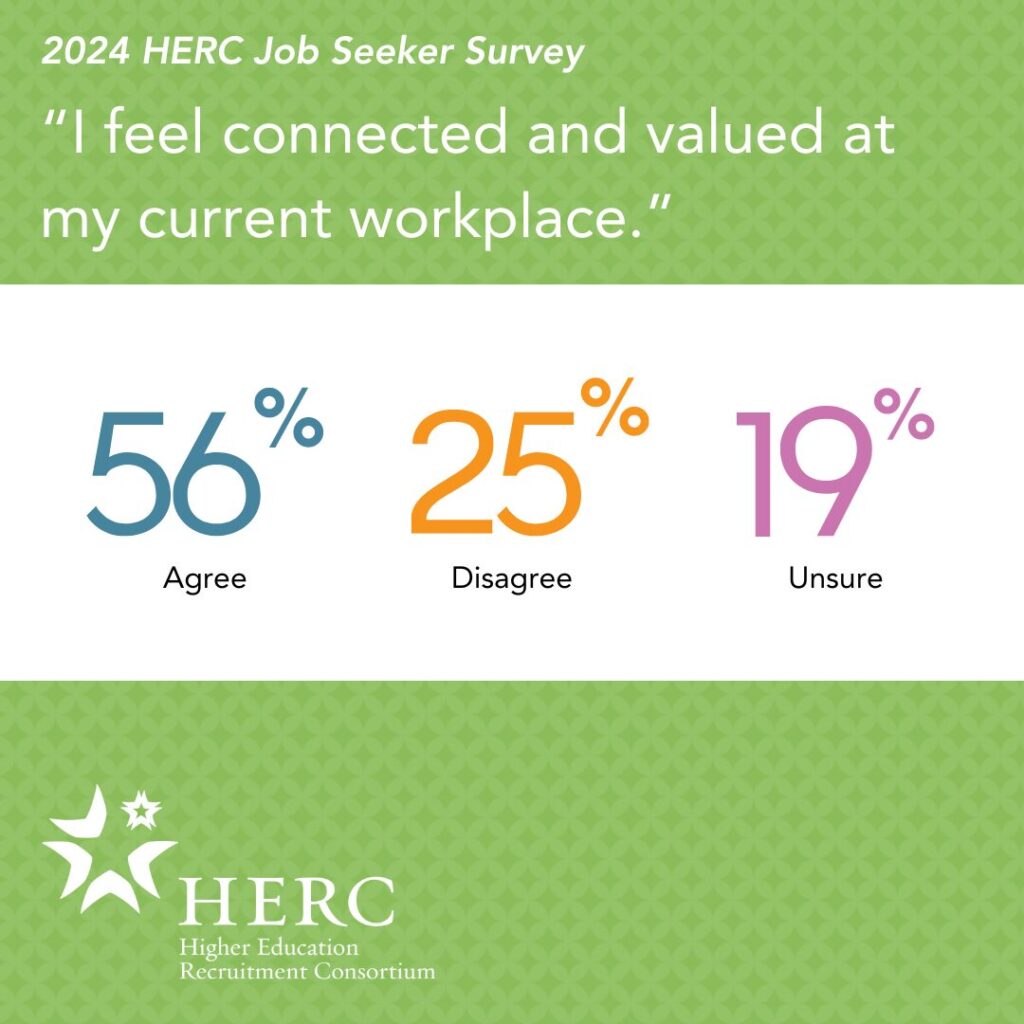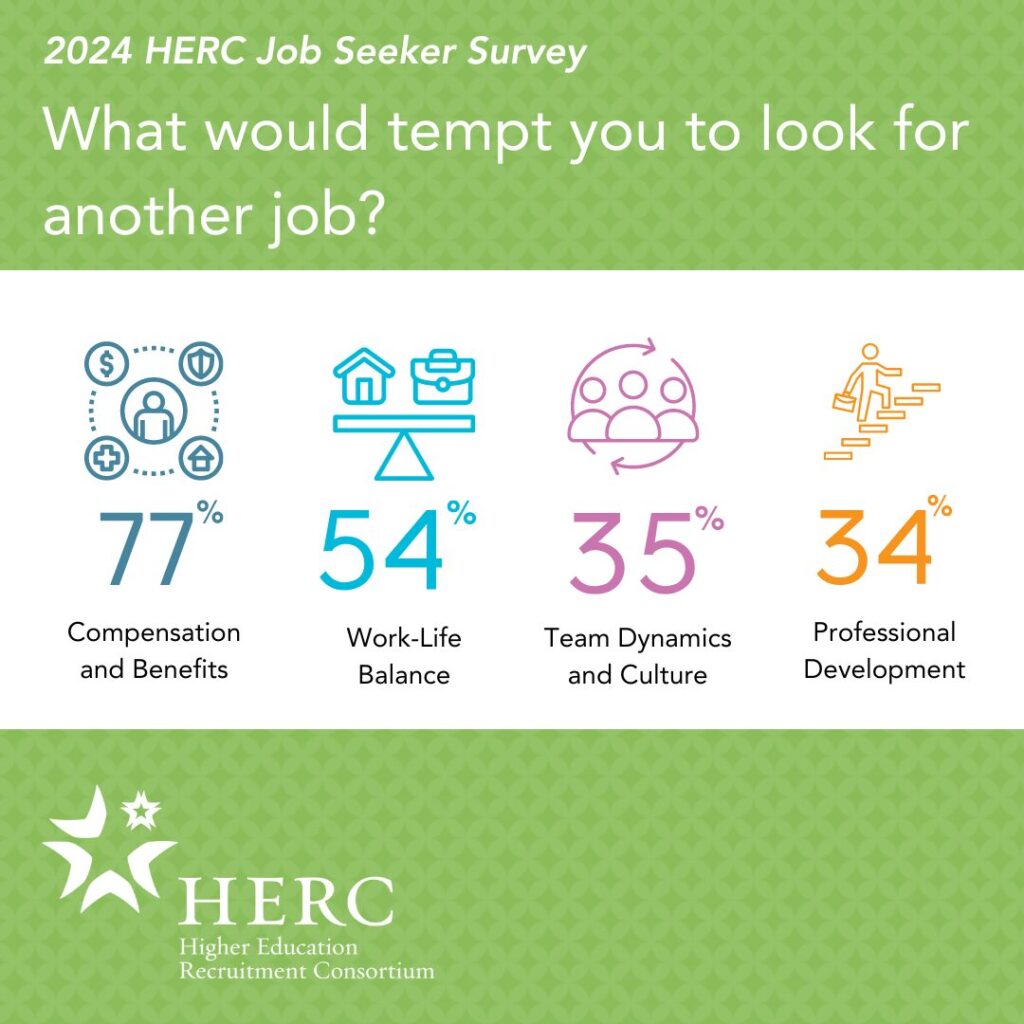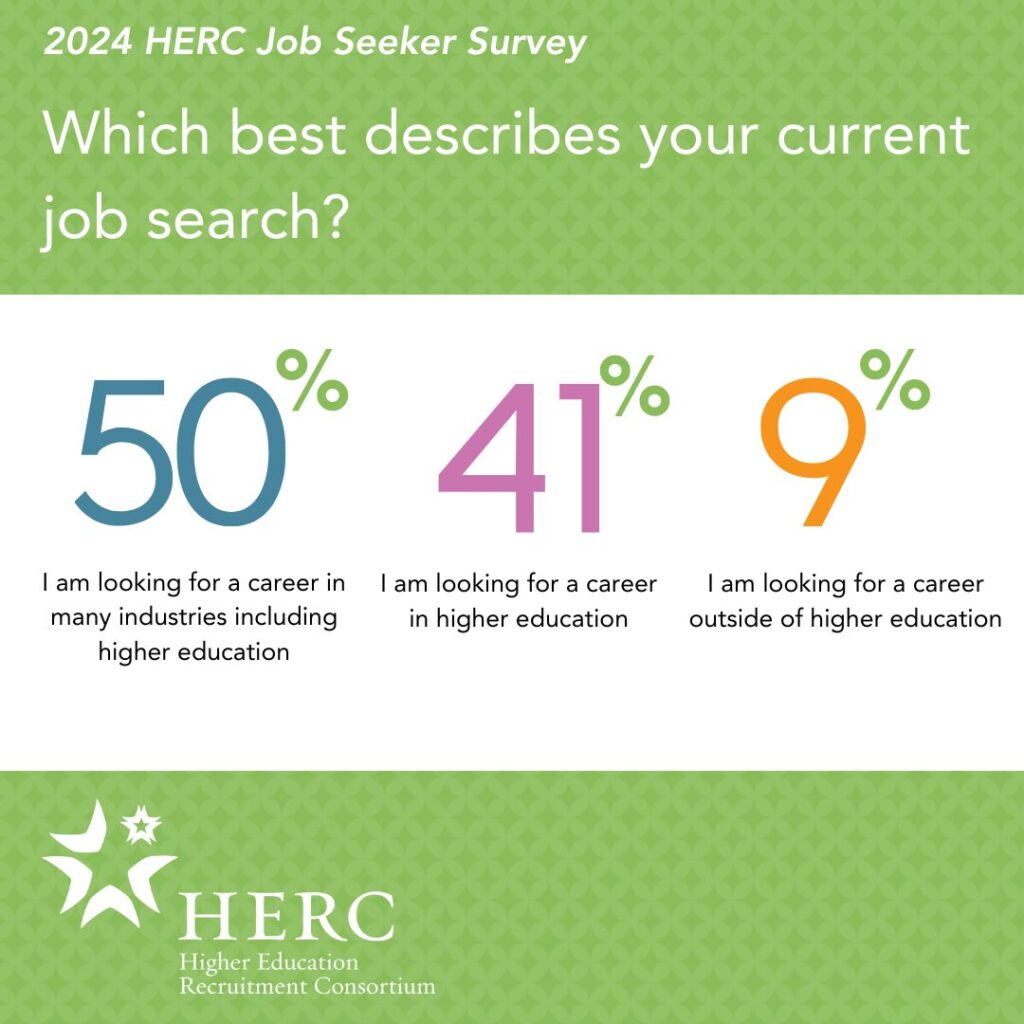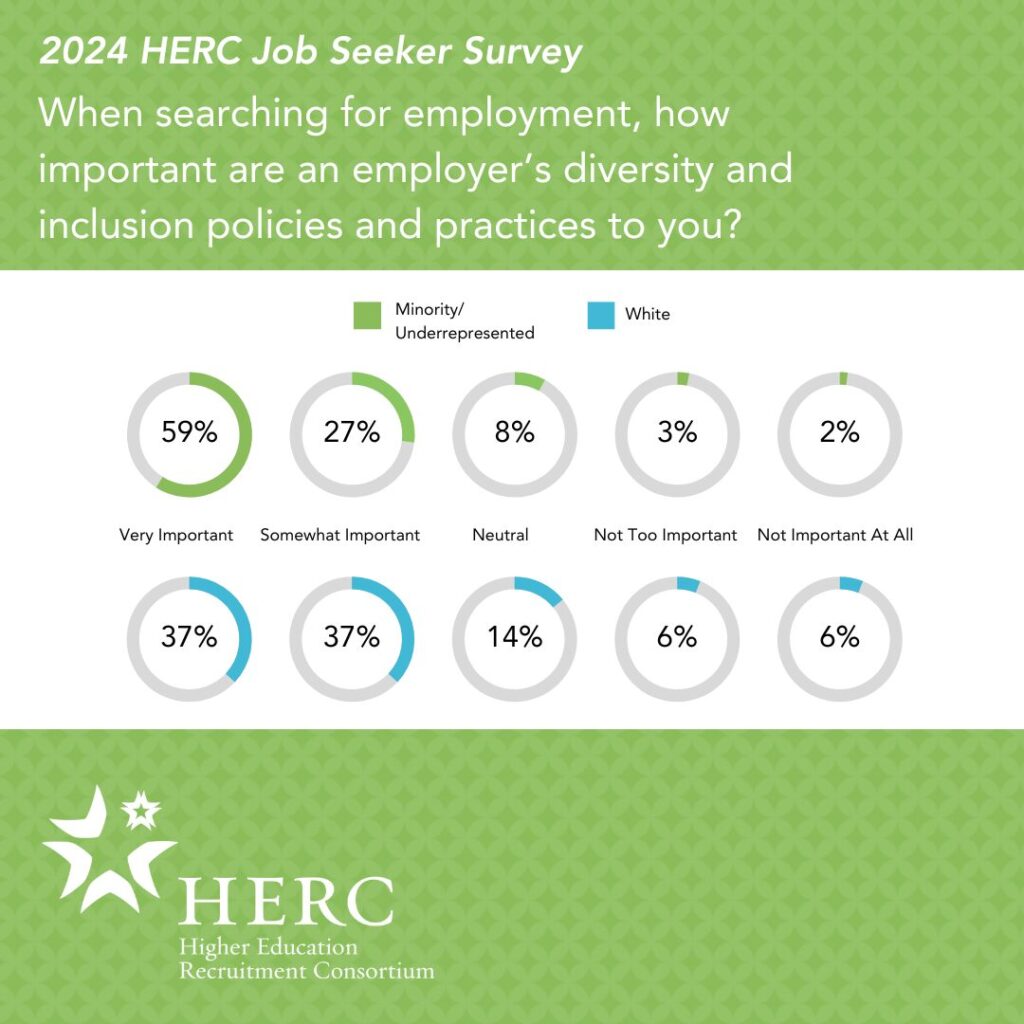2024 Survey Results: Changing Preferences of Job Seekers
There was a lot of media attention on higher education leadership and on-campus activities this year. Has this impacted the appeal of working in higher education? Do job seekers feel connected and valued at their current workplaces? What would tempt them to look for a new job? Does diversity and inclusion still matter to them?
Our annual job seeker survey aims to gain insight from current and potential employees in higher education and identify practical and effective strategies employers can use to find, select, and keep staff and faculty.
As higher employers face an aging workforce and competition from non-higher ed sectors for job candidates, they are continually working to meet the needs and expectations of job seekers today. Based on the results of our 2024 HERC Job Seeker Survey, we published a report with insights and recommendations for HR, academic affairs, and diversity leaders, encouraging them to pay attention to what job seekers across different stages in their careers want, including pathways for career advancement, flexible and remote work, and an inclusive, thriving workplace culture.
Below, we highlight some of our survey findings and takeaways.
Who Responded
The survey had 1,434 respondents, who reported these demographics:
- 78% hold master’s degrees or higher
- 42% are people of color
- 19% are individuals with disabilities
- 6% are veterans
- 69% are women; 30% are men
- 15% are 22-32 years old, 28% 33-43, 26% 44-54, 25% 55-65, 6% 66-76
- 56% are staff/administrators, 25% faculty members, 9% are graduate students/postdocs, 11% are currently working as both staff/administrators and faculty members
Most job seekers do not feel connected and valued at work

We asked job seekers if they agree or disagreed with this statement: “I feel connected and valued at my current workplace.” More than half of respondents (56%) agreed with the statement, while 25% disagreed and 19% were unsure.
The higher education workforce can be tempted to look for another job

When what would tempt them to look for another job, the top four answers were compensation and benefits (77%), work-life balance (54%), team dynamics and culture (35%), and professional development (34%).
Job seekers are open to opportunities across industries

When asked to describe their current job search, 50% of respondents said they were looking for a career in many industries, including higher education, 41% were looking for a career in higher education only, and 9% were looking for a career outside of higher education.
Diversity, equity, and inclusion remain a top priority

Despite recent attention on DEI efforts in higher ed, most minority & underrepresented (86%) and white (74%) respondents noted that diversity and inclusion policies were important to them. According to survey respondents, salary and compensation equity, having a positive reputation from current employees, and demonstrating that diverse faculty/staff can advance in their careers are the top three indicators of an employer’s commitment to DEI.
Your input about working in higher ed matters to us. Please participate in our monthly quick polls on LinkedIn (follow HERC on LinkedIn) and our annual job seeker survey (the next one will be in early 2025).
Check out Top Articles on HERC Jobs.

